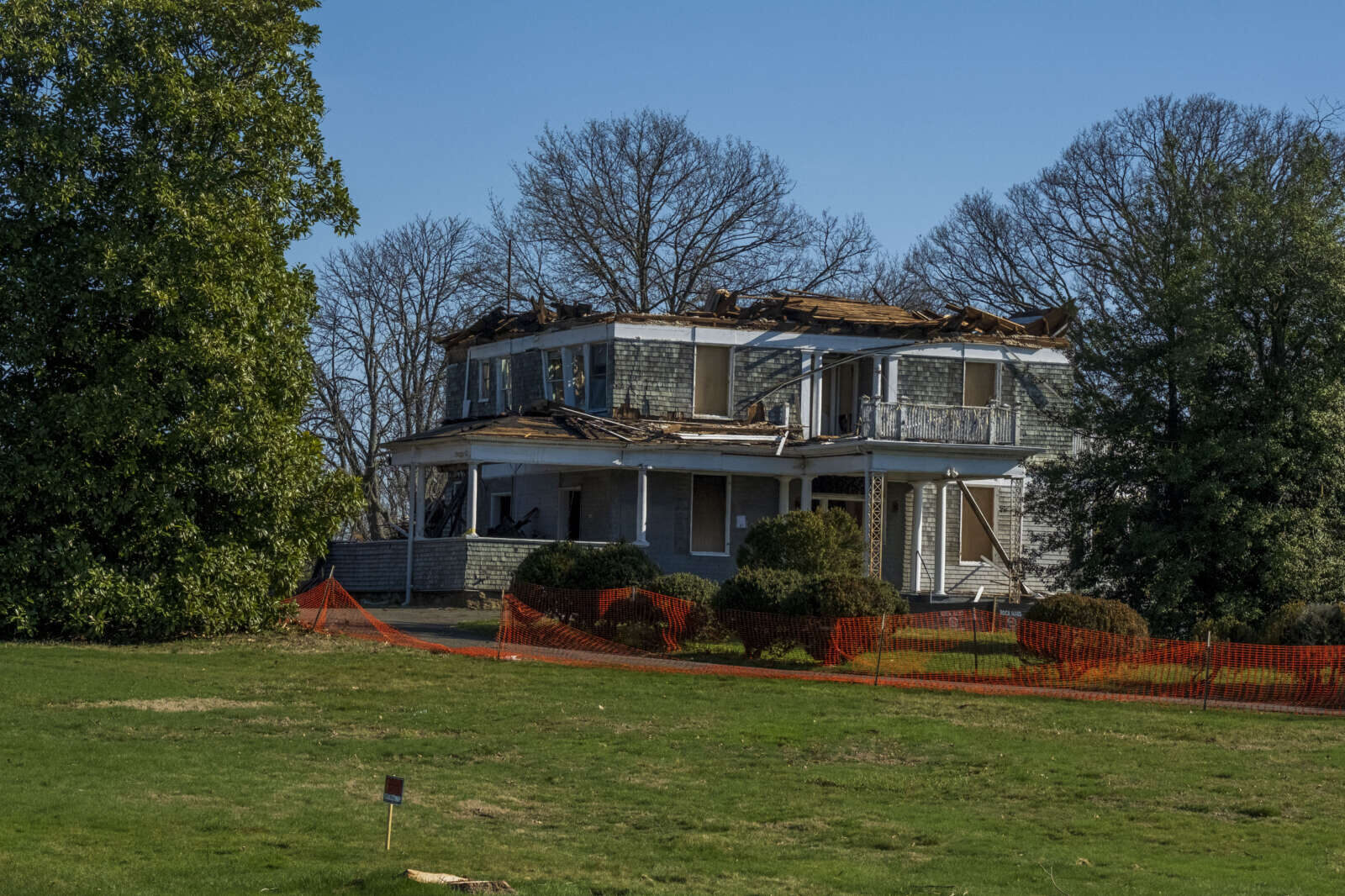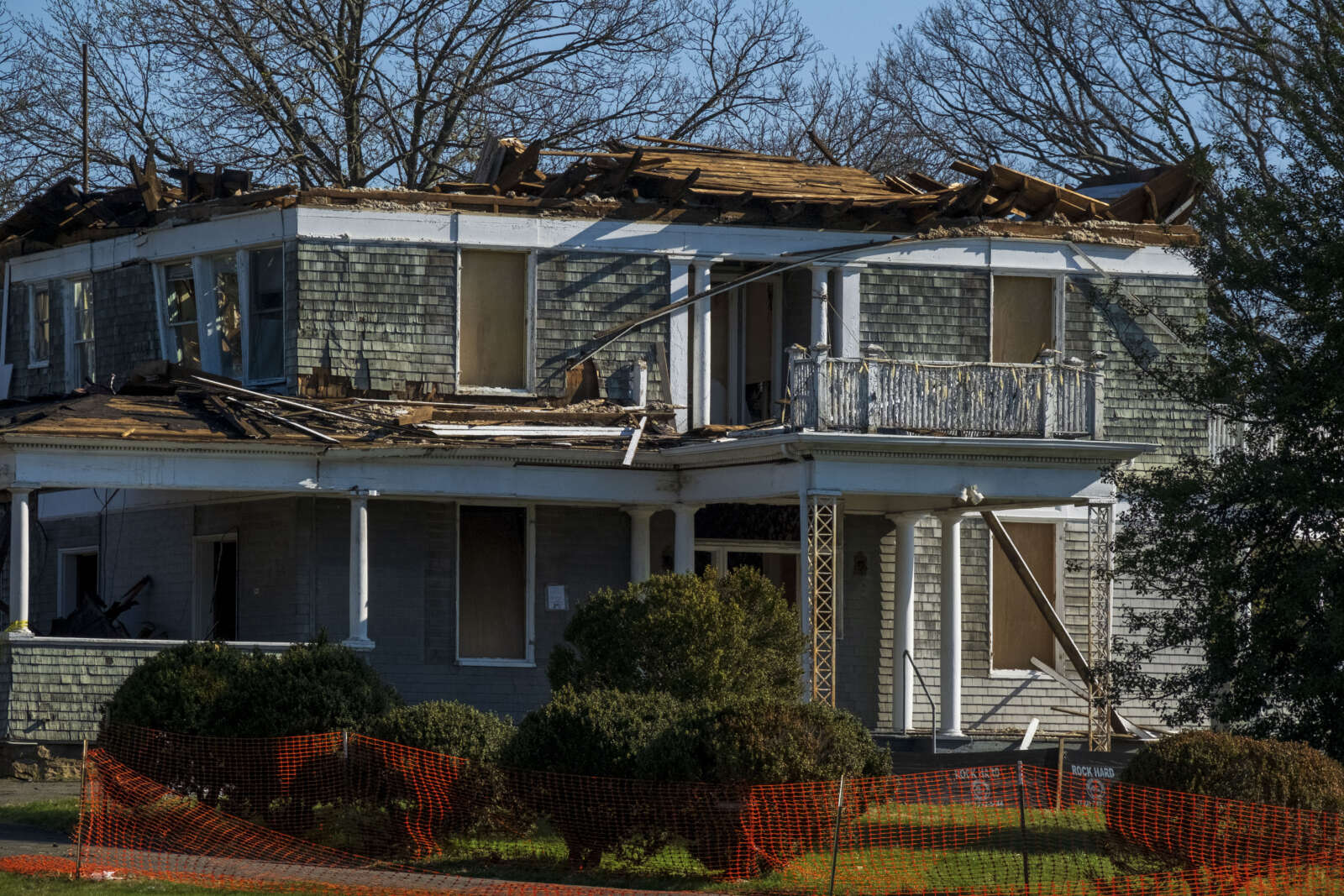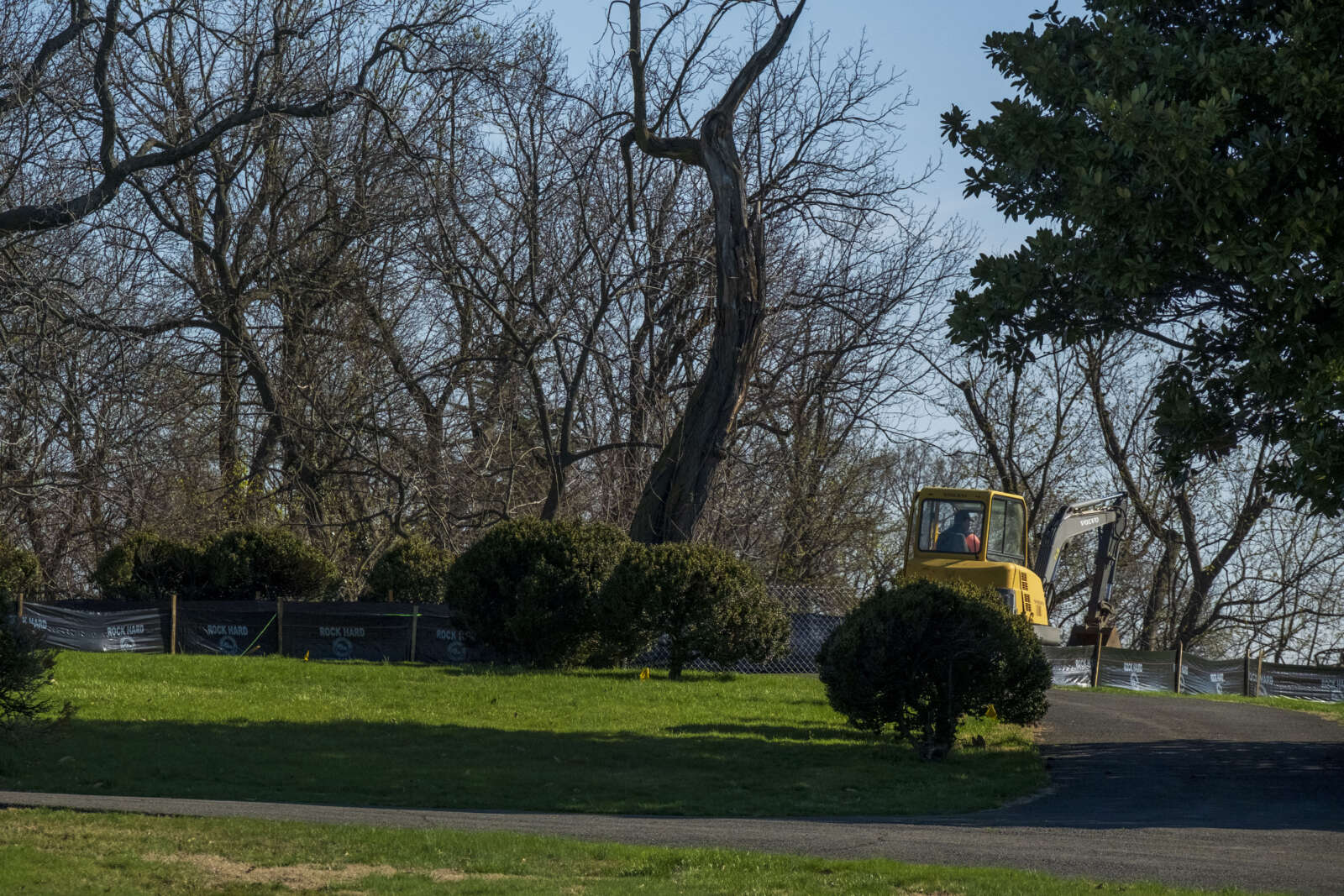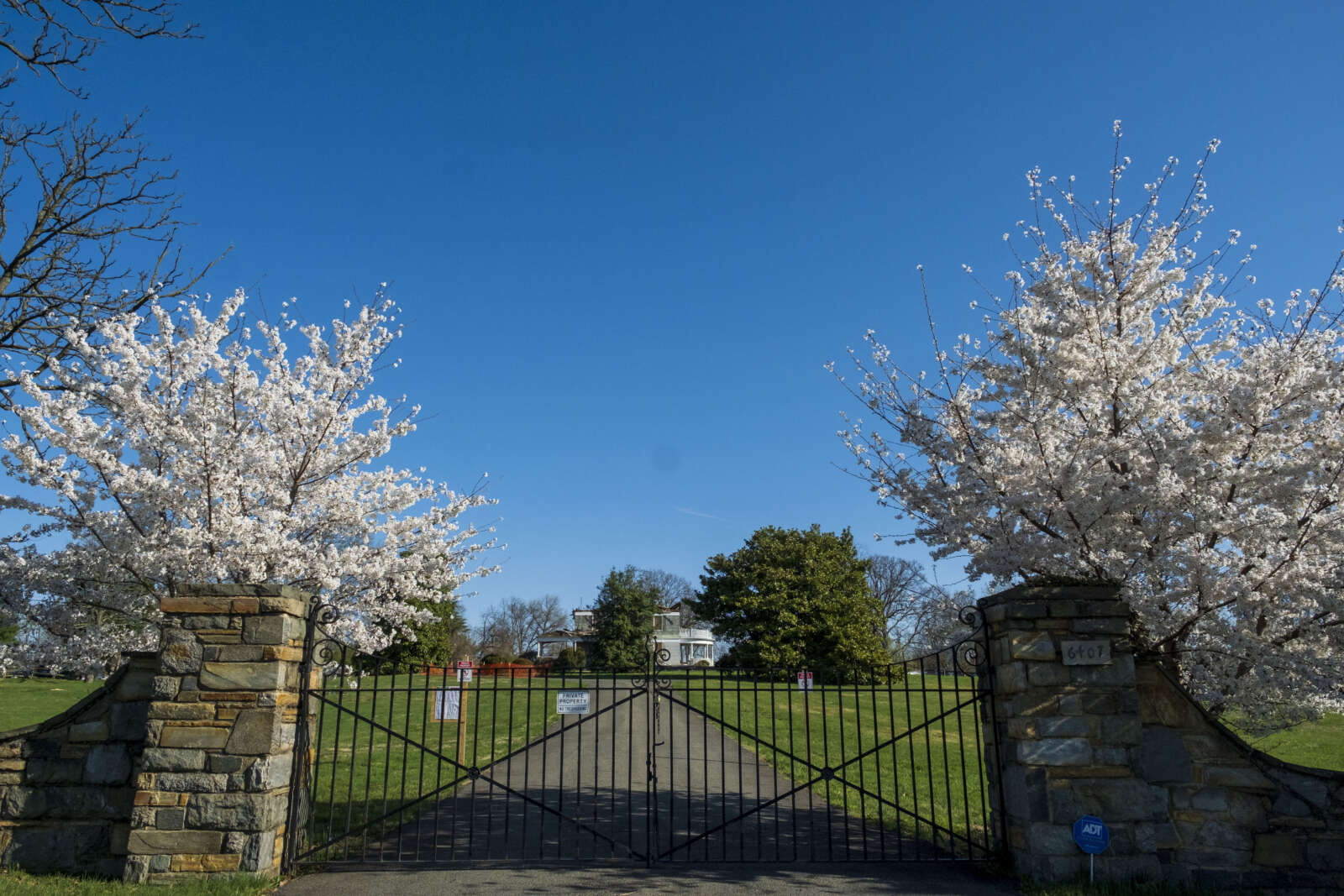Brian Hannigan just lost a battle he’s been fighting for the better part of a decade, and all that’s left now is to hope the end result isn’t too detrimental to his neighborhood.
Hannigan, president of the Dominion Hills Civic Association, has been one of the voices for years telling Arlington County that it should purchase the nine-acre Febrey-Lothrop House, at 6407 Wilson Blvd, when it became available.
Formerly home to businessman Randy Rouse before his death in 2017, the property is also known as the Rouse estate. While the house has undergone numerous renovations and expansions over the years, portions of it are believed to date back to before the Civil War.
It’s now being demolished, in anticipation of expected single-family-home development on the site.
The County Board took up the question of whether to designate the property as historic, requiring preservation or, at least, greater archeological efforts and documentation to be performed before development could occur, but the discussion was too little, too late, and a demolition permit for the house was approved administratively before any historic preservation designation could be enacted.
Though disappointed, Hannigan says he’s at least hopeful that the site won’t be up-zoned for denser development.
“I think it’s a done deal,” said Hannigan. “We received assurances from the trustee, the owner, that they have no interest in pursuing a sale that would involve rezoning.”
The potential historic designation is still on the books for discussion at meetings in April, but the house is already partially torn down.
According to the county website, Arlington County Historic Preservation staff were able to access the property prior to demolition. Hearings on the historic designation of a portion of the property are expected to proceed as scheduled at the Planning Commission and County Board, despite the home’s demolition.
It’s unclear what would be targeted for preservation if approved, though some on the County Board previously said possibility of pre-Columbian artifacts on the site, based on records of Native Americans activity in the area, was more compelling than any historical aspects of the house itself.
The designation is scheduled to be discussed at a Planning Commission meeting on Monday, April 5, and at the County Board on Saturday, April 17.
“I’m disappointed Arlington County didn’t step up,” Hannigan said. “Personally, been advocating for the county to target this land and acquire it for years, but those pleas have fallen on deaf ears. Two years ago county did put the site on the Parks Master Plan as generational and unique opportunity for acquisition. The language they used was appropriate, that if it goes on the market it’s gone forever. Well, that’s what happened.”
Hannigan said he hoped the land would be acquired by the county and preserved as open space, but now those hopes have shifted warily towards advocating against any potential rezoning.
“If it’s developed we want it to be developed consistent with the zoning of the rest of the neighborhood,” Hannigan said. “The way we figure, it could be anywhere around 45 new homes on that 9.4 acre property once you account for infrastructure and roadways. So that’s going to make a big difference for the neighborhood.”
Local affordable housing advocates, however, have been pushing a dramatically different vision for the property. During county meetings over whether or not to preserve the estate, some advocated for the property not only to be developed, but as higher-density housing with dedicated affordable housing.
“If [the property were] demolished, it would become detached single family homes,” Jane Green, a housing advocate who pens an ARLnow opinion column, said at a County Board meeting. “Preserving the property simply as open space is no better. It does not need to be a park, it is just down the street from Upton Hill Regional Park. R-6 zoning is a political choice, not an inevitability.”
County staff noted in the meeting that changing the zoning away from the current low-density residential zoning would require changing the General Land Use Plan.
Affordable housing advocates pointed to the Patrick Henry Apartments across Wilson Blvd as an example of the kind of housing that could be built at the former estate. Hannigan said if that sort of proposal comes forward there will be pushback from Dominion Hills residents.
“It would be inconsistent with our neighborhood,” he said. “Worse things could happen, and I follow the missing middle discussion… but the expressed preference… is for single family housing. We took a survey of the neighborhood last fall, it was 120-2 in favor of preservation of single family zoning. That’s our position.”





